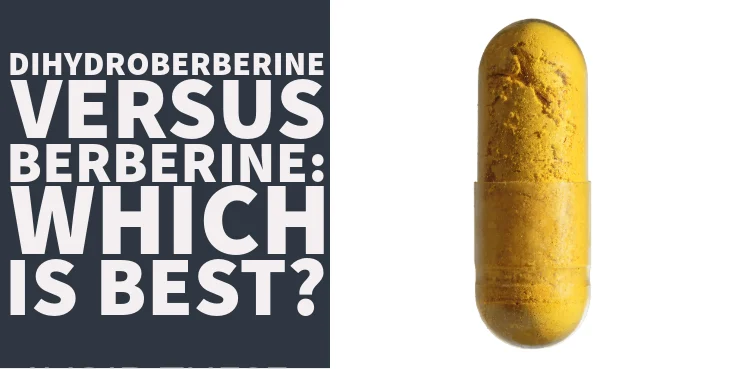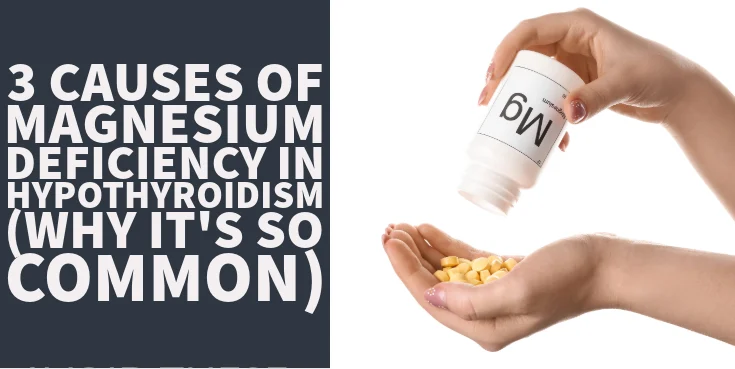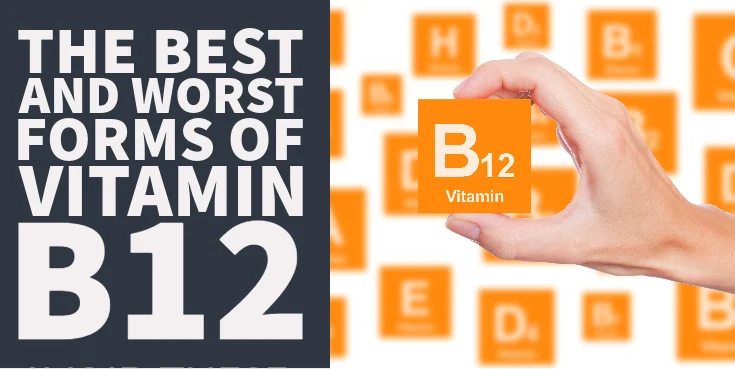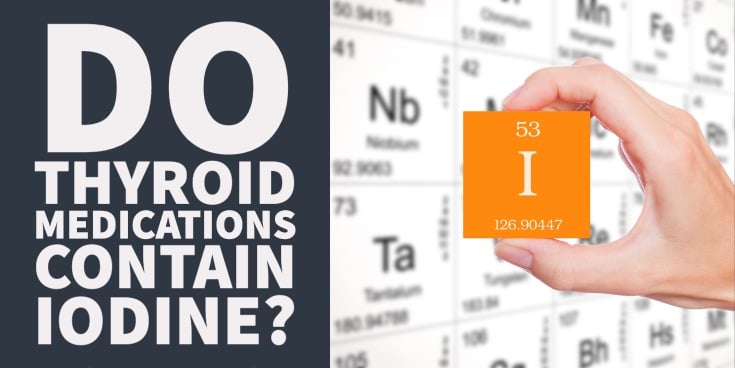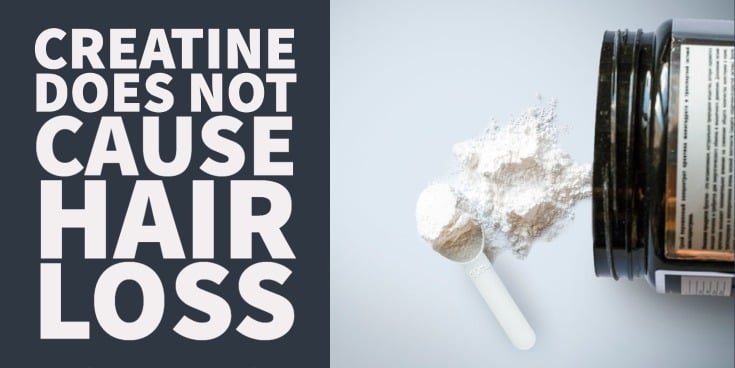Ferritin is an indication of the amount of iron in storage in your body.
Low ferritin levels are often associated with symptoms such as fatigue, shortness of breath, inability to exercise, and even hair loss.
Diagnosing and treating low ferritin is important because it can actually reverse these symptoms and improve quality of life.
Having said that there are some tips you need to know before you start supplementing with iron…
How much is too much, should you use liquid over capsule form, how long should you take iron… etc.
All of these questions and more will be answered in this post:
Understanding the importance of Ferritin
Why is ferritin so important?
The reason is simple:
Ferritin is a marker of the iron stored in your body. And iron is responsible (and critical) to maintain energy levels, maintain thyroid function, promote proper hair growth and so much more.
That means managing your ferritin level becomes very important, especially if you have any of these symptoms (we will go over a full list of symptoms below).
Another important factor that shouldn’t be overlooked is that most providers tend to ignore ferritin levels unless you have anemia.
But this begs the question:
Can you have low ferritin levels and not be anemic?
And the answer to this question is a resounding YES.
Because of this, many patients with the symptoms of low iron tend to be ignored by physicians unless it is also accompanied by low hemoglobin (this is termed anemia, or iron deficiency anemia).
The problem with this treatment paradigm is that many patients who are obviously symptomatic tend to get ignored when all they need is some iron supplementation to increase their ferritin.
Signs & Symptoms
Because iron is involved in so many processes in the body, the symptoms of low ferritin tend to be all over the map.
By now maybe you already know if you have low ferritin (or maybe you are just suspicious that you do), in either event, you should be tracking your symptoms as you treat to ensure that you are on the right track.
Patients with low iron and low ferritin tend to present with 1 or more of the following symptoms:
- Extreme fatigue and/or decreased energy levels(the loss of energy from low ferritin is usually constant and worse with exercise)
- Inability to exercise or decreased exercise capacity
- Symptoms of hypothyroidism(low iron mimics the symptoms of hypothyroidism and can be misdiagnosed)
- Hair loss or inability to grow back new hair
- Shortness of breath
- Brittle or damaged nails
Using this list above and combined with classic lab studies can give you an idea of your iron status (both iron storage and readily available iron in the serum).
The good news is that these symptoms are reversed relatively quickly after supplementation with iron (which we will discuss below).
Having said that it’s important to consider this:
These symptoms of low iron/low ferritin are relatively broad – meaning more than one medical condition can share the same symptom.
This is both a good and a bad thing.
It’s good in the sense that if you replace your iron levels and you don’t have a complete resolution in your symptoms you know that you likely have some other problem.
And bad in the sense that figuring out the root cause may be more complex and may take some more time.
Understanding your Labs – the difference between low ferritin and suboptimal ferritin
There is a big difference between having low ferritin levels (obviously outside of the normal reference range) and having suboptimal ferritin levels (low on the reference range spectrum but still within “normal limits”).
If you’ve read about my blog you will notice a few trends:
1) There is a big difference between being optimal and being “normal”
2) Standard lab values aren’t 100% accurate in establishing a diagnosis of nutrient deficiencies
3) It’s important to use multiple factors when diagnosing nutrient deficiencies
With this in mind let’s apply these rules to low ferritin:
Optimal ferritin levels fall within the 30-40 ng/mL range.
That means it’s possible to still have ferritin levels in the low normal range and still be symptomatic.
Unfortunately the “reference range” includes all values between 10-154 ng/mL.
If you fall below 10 ng/mL then you are considered outside of the normal reference range and that is a “low ferritin” level.
But you can also be at the low end of the range and still be symptomatic.
For this reason, I generally set the recommended level between 30-40 ng/mL as mentioned above.
Let’s see an example of an obviously low ferritin level:


You can see from the example above that serum iron levels are low at 29, percent saturation levels are low at 7, and serum ferritin levels are low at 9 ng/mL.
This is a classic presentation for low iron and in this case, it is also accompanied by low hemoglobin, a low hematocrit, and a low MCV which is classic for iron deficiency anemia.
But recall from above that you can have low iron and low ferritin levels WITHOUT being anemic as well.
Bottom line: You want your ferritin levels between 30-40 ng/mL, anything less is considered “suboptimal” and may be associated with the symptoms listed above.
Can you have low ferritin with normal iron?
Yes, it is entirely possible to have low ferritin levels with normal serum iron studies.
This has to do with how iron is stored in the body.

Your body used ferritin as the marker for the amount of iron in “storage”. This should be compared to serum iron which is readily available for use.
Your ferritin measures this “store” of iron, so low levels of ferritin indicate that your storage is low.
So it’s possible to have low storage of iron, but adequate serum/blood levels of iron floating around.
But here’s the catch:
Adequate ferritin is still required for proper cellular function including proper thyroid function (1).
This means that low ferritin levels but normal iron levels should still be treated.
What about high ferritin but low iron?
This part can be somewhat confusing so let me explain:
Ferritin is a marker of iron stores in the body, so it would follow that high ferritin would mean you also have high iron in the body, right?
Well, that is one potential cause of high ferritin, but it’s not the whole story.
It turns out that ferritin is also an acute phase reactant.
That means ferritin may rise in the setting of inflammation (2).
So high ferritin doesn’t always mean high iron levels.
This is how some patients may have high ferritin (due to inflammation) but low serum iron levels (due to deficiency of some cause).
That’s why it’s always important to be evaluated with a fully comprehensive set of labs that includes all iron studies, ferritin levels, and inflammatory markers (including ESR & CRP).
What causes it?
Knowing you have low ferritin is just the beginning.
What is more important than knowing you have low ferritin is knowing WHY you have low ferritin, to begin with.
Low iron levels should not happen under normal physiologic conditions which means that something is in disarray if your levels are low.
The most common causes of low iron/ferritin include:
- Heavy bleeding(as is seen with a heavy menstrual flow or with heavy cycles)
- Gastrointestinal malabsorption(This is a big cause and one we will discuss at length below)
- Chronic internal bleeding(usually seen with gastrointestinal bleeding like gastric ulcers, polyps, etc.)
- Autoimmune conditions like Celiac disease (This disease usually causes intestinal damage which leads to malabsorption)
Some of these causes are easier to spot than others so we won’t focus on the easy ones.
For instance:
You know if your menstrual flow is heavy. You most likely also know if you have some internal bleeding (gastric ulcer is usually accompanied by intestinal pain, etc.).
Instead, I want to focus on the more sinister cause and least often diagnosed condition, that leads to iron deficiency and low ferritin levels: gastrointestinal malabsorption.
I will go over this in more detail below because there are many GI-related conditions that may contribute to malabsorption and it is critical to treatment because without reversing this condition your iron will repeatedly drop over time.
Now that you have a basic understanding of why ferritin is important, how to correctly identify and diagnose if you have low ferritin, and what causes it – let’s talk about the benefits of replacing ferritin levels…
#1. Low ferritin = Decreased thyroid function
One of the biggest reasons to replace your ferritin levels is because of its impact on thyroid function.
It has been shown in many studies that low levels of iron impair proper thyroid function (3).
And this makes sense, especially considering that many of the symptoms of low ferritin mimic the symptoms of hypothyroidism: decreased energy, hair loss, etc.
The good news is that replacing low iron levels should improve your thyroid function (assuming you had normal thyroid function, to begin with).
This information becomes very important if you have known hypothyroidism.
In this setting, it is extremely important for you to have “optimal” levels of ferritin in your body to ensure proper thyroid hormone metabolism, conversion, and production.
You can read more about the connection between iron deficiency and hypothyroidism here.
#2. Increases hair loss & Stop hair growth
What you may not realize is that iron plays a critical role in normal hair growth as well.
In addition, low iron (and thus low ferritin) is an important cause of hair loss in premenopausal women (4).
This is very important because many cases of hair loss are attributed to “genetics” and/or “thyroid” related problems when in reality they may be due to low iron levels.
Another study (of women of childbearing age without inflammation or other known conditions) showed that ferritin levels less than 30 ng/mL (5) are strongly associated with telogen hair loss.
This is another example showing the importance of “optimal” vs “standard” reference ranges.
If you have a ferritin level of less than 30 ng/mL and you are experiencing hair loss, then it would be worth considering iron supplementation (or at least discussing this option with your physician).
While iron is very important for proper hair growth, other nutrients (6) are also involved including zinc, selenium, and L-lysine.
If you are experiencing hair loss then proper evaluation of iron studies, thyroid studies, and other micronutrients is recommended.
#3. Decreases energy levels
One of the primary symptoms of iron deficiency is decreased energy levels or fatigue.
This is felt to be secondary to several factors:
Iron helps to carry oxygen (7) to peripheral tissues and oxygen is required for proper metabolic energy production in the mitochondria.
Low iron levels likely contribute to decreased energy production and efficiency in enzymatic processes.
The decreased efficiency may manifest as the subjective sensation of low energy.
In addition to this (and as already stated) ferritin is involved in thyroid metabolism.
Thyroid hormone is also involved in proper mitochondrial energy production (8) and one of the main symptoms of hypothyroidism is fatigue.
Nowadays chronic fatigue plagues many patients and the cause of this symptom is often missed.
If you have low energy levels (of unknown cause) this is yet another reason to have your iron and ferritin levels properly evaluated.
#4. Limits your ability to exercise and reduces your overall activity level
As mentioned low iron leads to the potential for low oxygen delivery to peripheral tissues.
This includes skeletal muscle in your body.
Decreased energy production in your skeletal muscle will result in diminished strength during exercise and a reduction in exercise capacity (9).
This usually manifests as shortness of breath during a workout (beyond what would be “normal” for your fitness level) in addition to rapid heart rate.
Both of these changes are felt to be compensatory to the decreased oxygen-carrying capacity of the body, but their effects are very important.
Diminished exercise capacity may lead to weight gain over time and disruption of other hormones involved in proper energy metabolism (leptin and insulin).
Your ability to exercise is yet another important factor to treat low ferritin if present.
If you are experiencing shortness of breath while exercising and you have many of the other symptoms listed above, then you should consider getting a complete set of iron studies.
#5. May impact your immune system
Another important (and often underappreciated) role of iron is in the immune system.
Dysregulation of serum iron levels may lead to changes in immune function and limit the cellular response to bacteria (10).
Iron is not the only nutrient involved in proper immune function, however.
If you feel your immune function is not functioning optimally then you can consider the evaluation of other micronutrients like Vitamin D and Zinc.
#6. Low ferritin may indicate hidden gastrointestinal problems that need to be treated
This may be the most important reason of all.
Low ferritin is caused by some imbalance in the body, which means that finding and reversing that imbalance is necessary to maintain normal iron and ferritin levels.
One of the more common causes of low ferritin is related to gastrointestinal issues and malabsorption of iron.
The following GI-related conditions have been associated with the malabsorption of micronutrients:
- Small intestinal bacterial overgrowth (11)
- Small intestinal fungal overgrowth
- Low stomach acid (12) (including patients taking acid-blocking medications)
- Intestinal dysbiosis (13)
- Increased intestinal permeability (14)
- Inflammatory bowel disease (15)
- Irritable bowel syndrome (16)
- Chronic constipation syndromes and/or chronic diarrhea syndromes
If you know that you already have one or more of the GI conditions listed then you have a smoking gun for the cause of your iron deficiency.
If you aren’t sure you have a GI-related issue then consider this:
You should not be experiencing gas, bloating, constipation, diarrhea, or acid reflux and the presence of these symptoms usually indicate some other GI problem.
The presence of any of these symptoms should make you consider further evaluation for the cause of these symptoms, especially in the presence of low ferritin.
Why?
Because if you don’t treat the underlying cause of your low iron levels then even if you replace those levels it will likely come back.
#7. Whatever caused your low iron levels may also be causing other nutrient deficiencies and contributing to your symptoms
The decline of one nutrient deficiency almost always leads to the decline of other micronutrients.
Why?
Because nutrients are absorbed in certain parts of the GI tract and absorption requires co-factors, stomach acid, and even other nutrients for complete absorption.
For instance: Iron requires vitamin C for absorption (17).
The combination of slightly abnormal levels of magnesium, B12, iron, zinc, etc. may negatively influence your symptoms and all contribute to the subjective symptoms you may be experiencing due to low ferritin.
This is important because replacing these other lost nutrients is critical for the complete reversal of your symptoms.
Let’s use this as an example:
Let’s assume your iron levels are < 10 (obviously low) so you decide to supplement with liquid iron or iron capsules.
Initially, you feel some improvement in your energy levels but not 100%.
What is accounting for the other 50%?
Some of this may be due to the combination of vitamin B12 deficiency that may be low as well and therefore energy levels will not improve until this deficiency is replaced.
Hopefully, this paints the picture of why replacing ALL lost nutrients is so important.
If you are deficient in 1 nutrient, there is a chance (by virtue of the same mechanism that caused the initial deficiency) you are also deficient in others.
- Bottom line: If you are deficient in 1 nutrient, there is a chance (by virtue of the same mechanism that caused the initial deficiency) you are also deficient in others.
How to increase Ferritin levels safely
If you’re planning on supplementing with iron to increase your ferritin levels there are a few things you should know:
1) Iron is very much a Goldilocks type of nutrient in your body – too little is a problem but too much also causes problems like iron overload.
This means you should only supplement with iron if you are basing your supplementation on your lab results.
I don’t recommend supplementing with iron if you don’t know your ferritin lab values and you don’t follow them.
2) Due to absorption issues (as mentioned above) most patients do better on liquid forms of iron.
Liquid iron is more readily absorbed and should NOT worsen constipation.
If you are unable to tolerate liquid iron (due to taste or some other problem) then switching to capsules is fine, but start out with liquid iron if possible.
3) Very low levels of ferritin may require IV iron infusions (depending on the cause).
This doesn’t apply to the majority of people out there, but if your ferritin levels are extremely low and you are unable to raise them then you should consult with your physician.
4) Patients taking Thyroid medication should not use iron within 2-4 hours of taking their thyroid medication.
Iron may decrease the absorption of thyroid hormone and these should be taken as far apart as possible.
In other words, hypothyroidism sets up a physiologic situation where iron deficiency is more common than in the general population.
To avoid absorption issues with thyroid hormone it’s best to take your iron supplement in the evening if you take your thyroid hormone in the morning.
5) Patients with Iron deficiency frequently also have Vitamin B12 deficiency.
For this reason, I frequently recommend checking both iron and B12 levels simultaneously (more information below).
B12 plays an important role in your energy levels (as does iron) and deficiencies of both may be contributing to your overall symptoms.
You can replete B12 levels with a high-quality over-the-counter B Complex.
Can low Ferritin lead to weight gain?
Another common symptom that many patients with low ferritin will experience is weight gain.
The connection between low ferritin and weight gain definitely exists, but exactly why it occurs is less understood.
Based on the interaction that ferritin has with thyroid function and thyroid conversion – this is most likely the reason that patients experience weight gain with low ferritin levels.
Low levels of ferritin reduce thyroid hormone production because an enzyme in the thyroid is required to create thyroid hormone.
This enzyme is known as heme-dependent thyroid peroxidase.
If thyroid hormone production falls then your metabolism will suffer, which means you will be burning fewer calories at baseline.
A reduction in thyroid hormone also promotes changes to other hormones resulting in resistance syndromes such as leptin resistance and insulin resistance.
Part of the problem with weight gain and low ferritin is that some patients are refractory to iron replacement therapy.
This may lead to a situation where replacing iron is required in order to lose weight, and you may ultimately need iron infusions to replete ferritin and iron stores in the body.
Recap & Final Thoughts
Iron is a critical nutrient involved in many biochemical pathways, the deficiency of which may lead to many negative symptoms.
Ferritin is used as a marker of iron stores in the body and low ferritin levels generally indicate low iron stores.
Low ferritin levels should be treated with liquid or iron capsules until ferritin levels rise into the 30-40 ng/mL range (this is considered the optimal range).
It is possible to have high ferritin levels but low iron stores due to how ferritin’s action as an acute phase reactant.
Remember that other nutrient deficiencies also tend to accompany iron deficiency and these must be treated as well.
Finding and treating the root cause of your iron deficiency is critical to long-term success as a lack of diagnosis of this problem may lead to persistent low iron levels over time.
Now it’s your turn:
Are your ferritin levels low?
Has supplementing with iron helped to improve your energy levels?
Why or why not?


